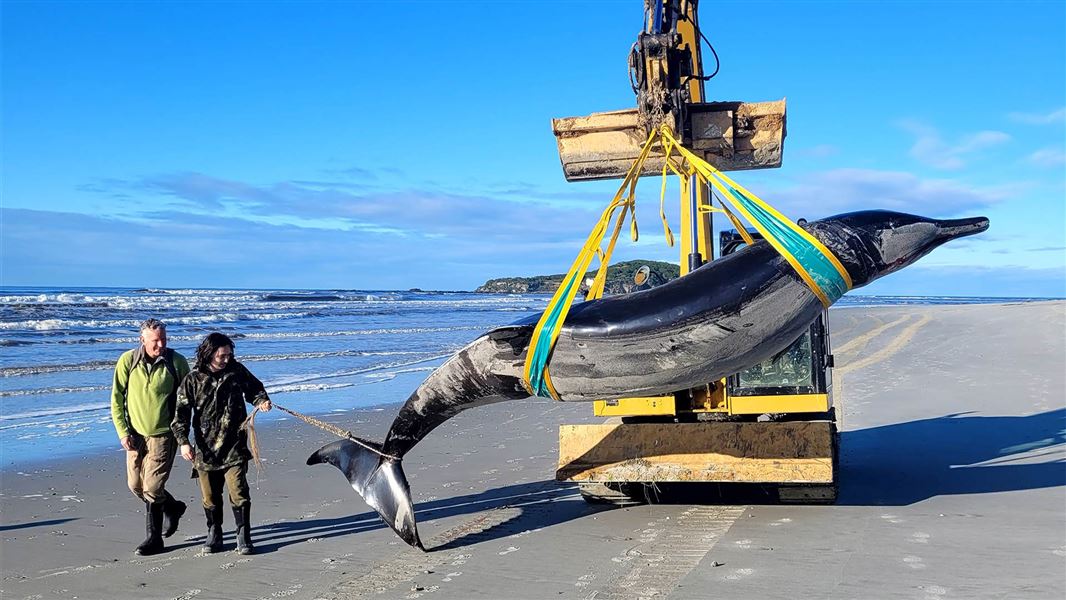Archived content: This media release was accurate on the date of publication.
Date: 15 July 2024
On Thursday 4 July, Department of Conservation (DOC) staff were notified a type of beaked whale around 5 m long had washed ashore near Taiari Mouth.
Upon inspection, and consultation with marine-mammal experts from DOC and Te Papa, it appears the creature was a male spade-toothed whale – a species so rare next to nothing is known about them.
DOC Coastal Otago Operations Manager Gabe Davies says if confirmed, this will be a very significant scientific find.
“Spade-toothed whales are one of the most poorly known large mammalian species of modern times. Since the 1800s, only 6 samples have ever been documented worldwide, and all but one of these was from New Zealand. From a scientific and conservation point of view, this is huge.”
DOC has been working in partnership with Te Rūnanga ō Ōtākou on next steps to make a plan for the whale’s remains. A specimen this fresh offers the first opportunity ever for a spade-toothed whale to be dissected.
The rarity of the whale means conversations around what to do next will take more time because it is a conversation of international importance, says Gabe.
Te Rūnanga ō Ōtakou chair Nadia Wesley-Smith says the rūnaka will partner with DOC for decision making from the outset.
“It is important to ensure appropriate respect for this taoka is shown through the shared journey of learning, applying mātauraka Māori as we discover more about this rare species.”
Genetic samples have been sent to the University of Auckland as curators of the New Zealand Cetacean Tissue Archive. It may take several weeks or months for the DNA to be processed and a final species ID to be confirmed.
The species was first described in 1874 from just a lower jaw and two teeth collected from Pitt Island, Rēkohu (Chatham Islands). That sample, along with skeletal remains of two other specimens found on Whakāri/White Island and Robinson Crusoe Island (Chile) enabled scientists to confirm a new species. Two more recent findings, in Bay of Plenty and north of Gisborne, helped describe the colour pattern of the species for the first time.
The whale has since been carefully removed from the beach by local contractor Trevor King Earthmoving, and local rūnaka members along with Otago Museum were also on site to support and document.
The whale is currently in in cold storage to preserve the remains until the next steps have been decided.
Background information
- Because so few specimens have been found, and no live sightings have ever been recorded, little is known about the spade-toothed whale. It is classified as data deficient in the NZ Threat Classification System.
- The first intact specimen was from a mother/calf stranding in Bay of Plenty in 2010. A further stranding in 2017 in Gisborne added one more specimen to the collection.
Contact
For media enquiries contact:
Email: media@doc.govt.nz
